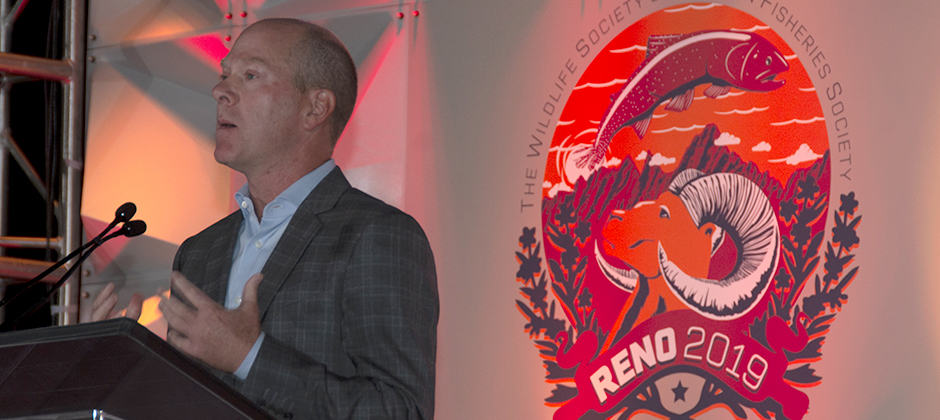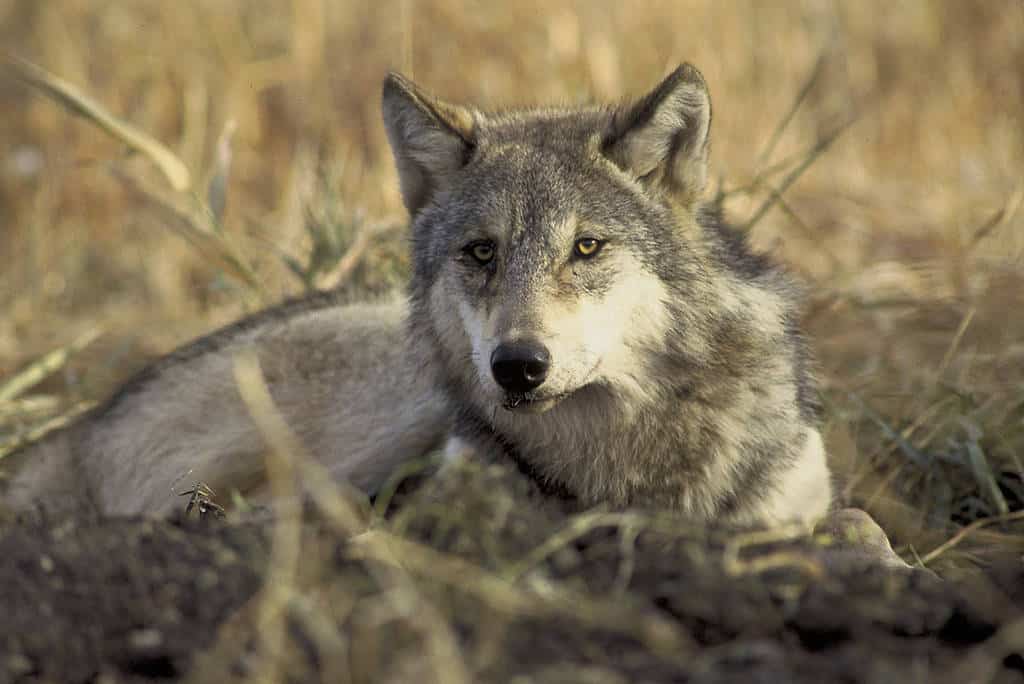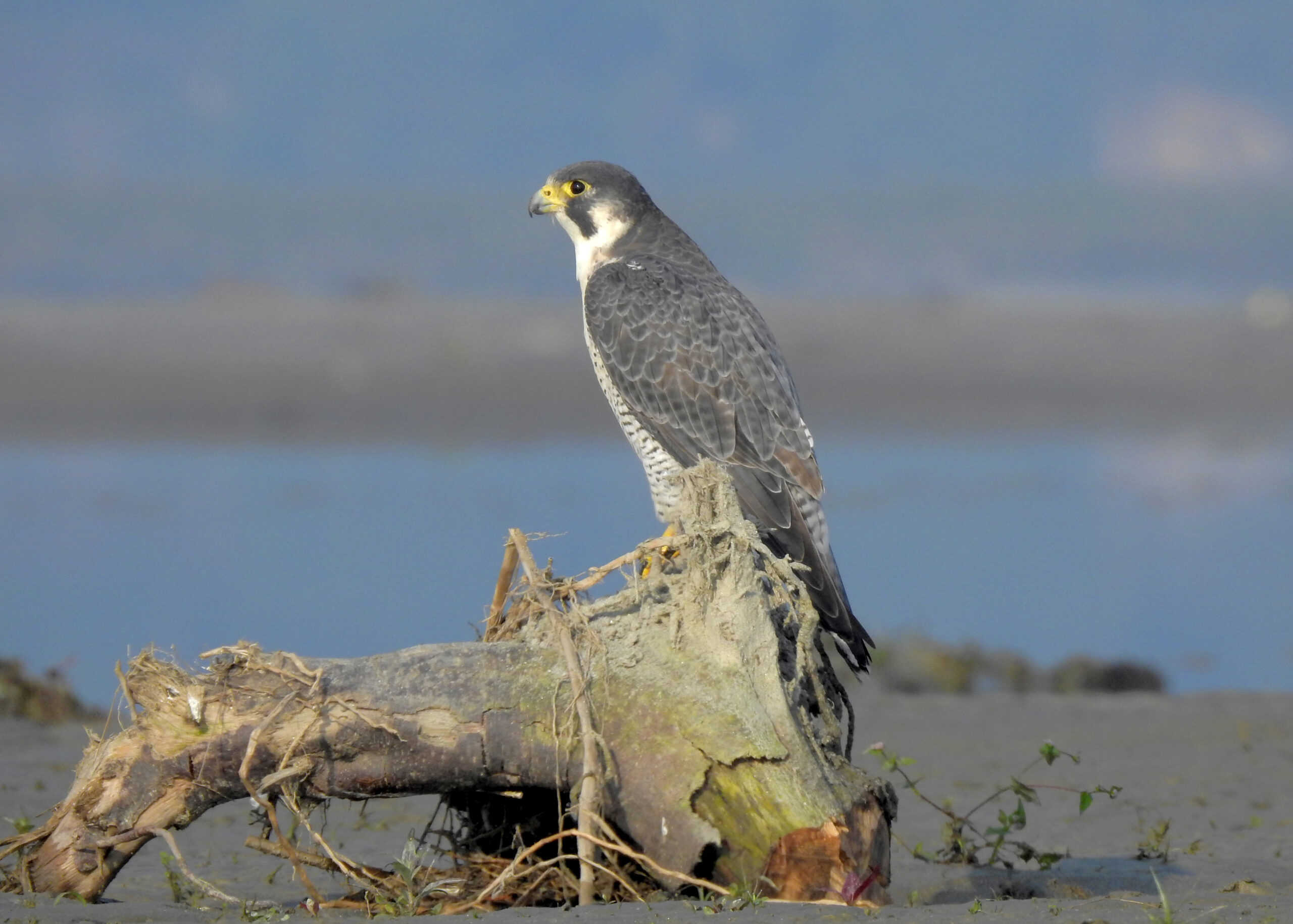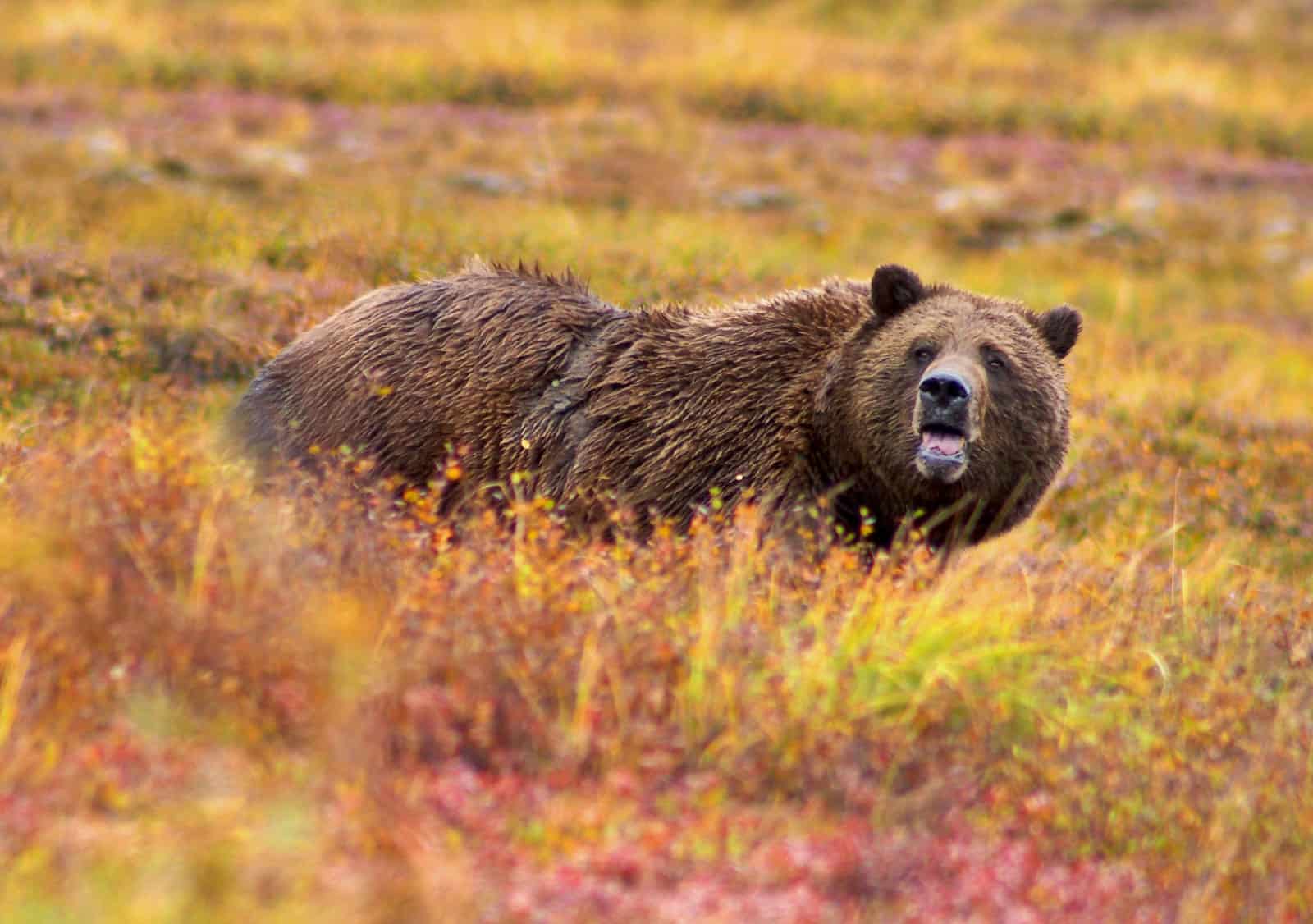Share this article
Fish and wildlife leaders: ‘Don’t stop believin’’’
Hundreds of wildlife and fisheries biologists became rock stars for a moment on Monday as Charlton Bonham, director of the California Department of Fish and Wildlife, led them in the chorus of a 1980s hit by the rock band Journey. For fish and wildlife biologists wondering if their work matters, the song title said it all: “Don’t Stop Believin’.”
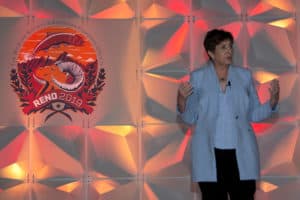
Rebecca Humphries, CEO of the National Wild Turkey Federation, urges biologists to share their work with the public. ©David Frey
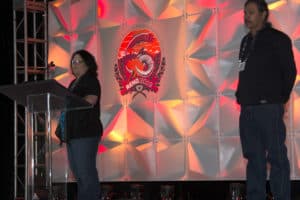
Elveda Martinez, from the Walker River Paiute tribe, stresses the importance of working with Native Americans on natural resource issues. ©David Frey
Earlier this month, Bonham told the crowd he was on the scene of the official reintroduction of the Paiute cutthroat (Oncorhynchus clarkii seleniris) to Silver King Creek in Alpine County, California, where it hadn’t existed for a century.
“When I stood in the wilderness and watched our colleagues do that, they were crying tears of joy,” he said at the opening plenary session at the American Fisheries Society and The Wildlife Society 2019 Joint Conference in Reno, Nevada.
Key fish and wildlife leaders came together during the session to urge researchers and wildlife managers to improve their messaging to the public in the interest of conserving the natural world.
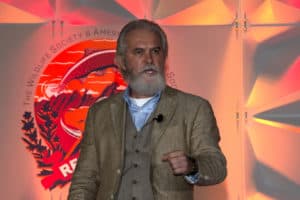
Shane Mahoney, president and CEO of Conservation Visions, Inc., urges biologists to be aware of changing attitudes toward wildlife. ©David Frey
“Be a champion for natural resources and natural resources professions. Be an ally,” said Jesse Trushenski, president of the American Fisheries Society.
Rebecca Humphries, CEO of the National Wild Turkey Federation, told the audience of scientists to think about how they can better share their wildlife stories to the public, whether in person or through social media and other avenues. Focus on clear, crisp messages, she said, and avoid confusing acronyms.
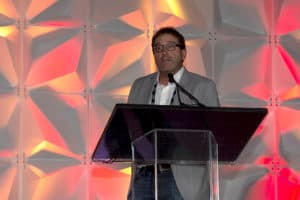
Zeb Hogan, a research assistant professor at the University of Nevada, Reno, and star of National Geographic’s Monster Fish, urges researchers to combine science and passion in their messaging to the public. ©David Frey
“We as scientists are wonderful in talking in a manner that nobody else understands,” she said.
Humphries said she remembered a time when she was the only female working in her profession.
“Having greater diversity makes us more relevant to people,” she said.
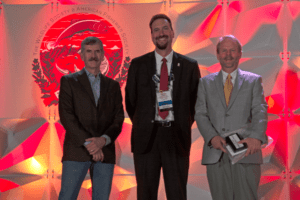
David Haukos, right, receives the Caesar Kleberg Award for Excellence in Applied Wildlife Research. He is joined by David Hewitt, left, executive director of the Caesar Kleberg Wildlife Research Institute and TWS President Darren Miller. ©David Frey
Elveda Martinez, from the Walker River Paiute tribe, urged fish and wildlife professionals to improve conservation by allying with tribes, which are concerned with maintaining species as both natural resources and culturally important icons.
Shane Mahoney, president and CEO of Conservation Visions, Inc., urged the crowd to be aware of the public’s changing attitudes toward wildlife.
“We are living in a unique time when the empathy toward animals is increasing at an extraordinary pace,” he said.
And Zeb Hogan, a research assistant professor at the University of Nebraska, Reno, and star of National Geographic’s Monster Fish, spoke of the importance of researchers combining science and passion.
“One of us can’t have a big impact, but all of us can change the world,” he said.
Header Image: Charlton Bonham, director of the California Department of Fish and Wildlife, speaks about the ability of biologists to make a difference in conservation. ©David Frey



